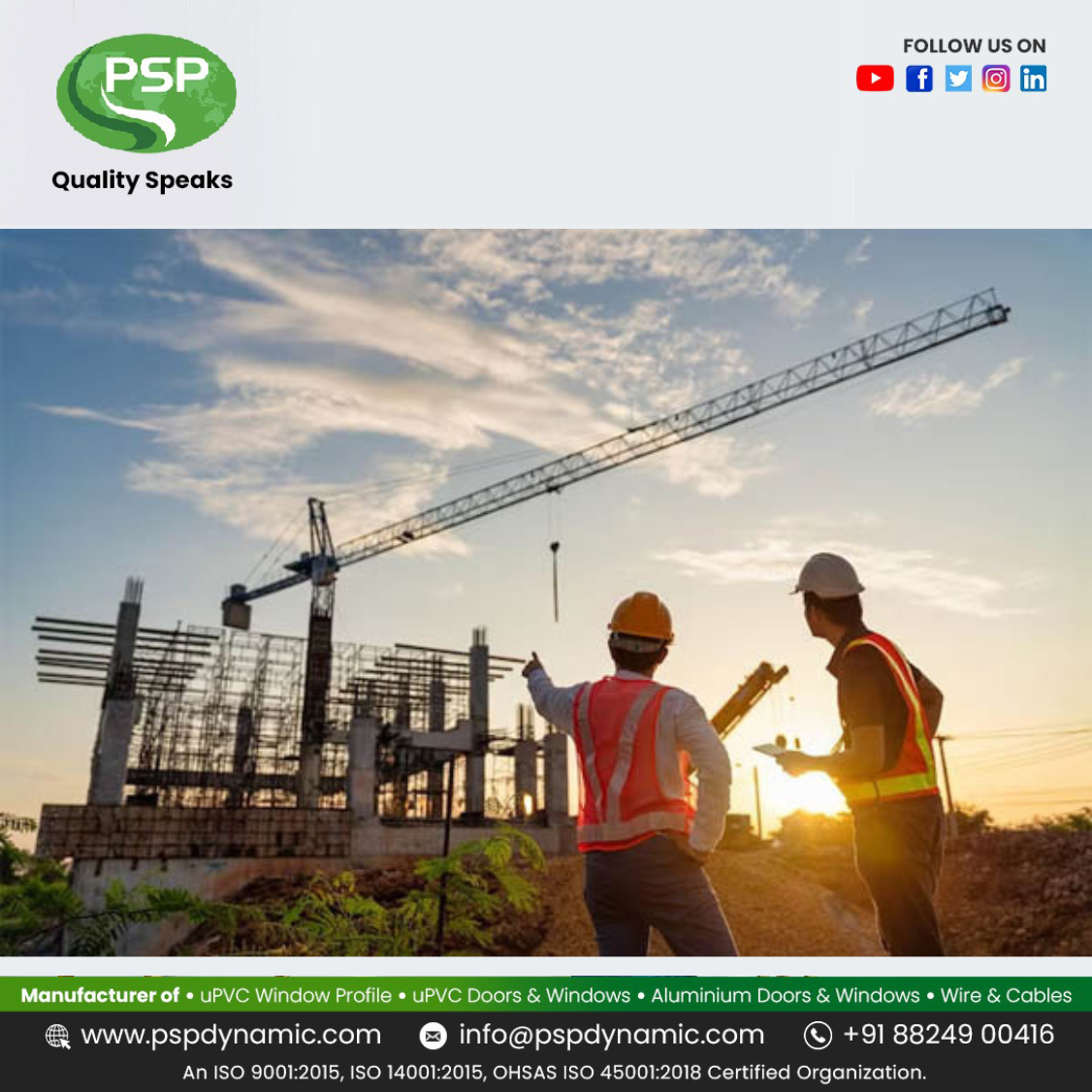
Construction project management is a vital skill for any building or infrastructure project to be successfully completed. With the fast pace of today's world, where budgets are usually tight and deadlines are always tight, timely delivery of projects is more important than ever before. Effective project management helps complete construction projects on time, within budget, and to the highest possible quality.
In this blog, we will discuss the most important elements of project management in construction, why timely delivery is so crucial, and how construction firms like PSP India employ different tactics to be successful. We will also discuss some common frequently asked questions to better understand this intricate yet rewarding discipline.
Time is money when it comes to construction projects. Construction delays have far-reaching consequences, from cost overruns to ruined reputations. If a construction project is delayed, it can create a host of problems like:
For projects to be completed within time, proper project management procedures should be applied right from the start. These are the project management key elements in construction:
Successful planning is the key to any successful building project. The project plan maps out all the activities, schedules, finances, and inputs that are needed to finish the project. A good plan enables project managers to foresee foreseeable problems and implement solutions ahead of time. Some of the important steps in project planning are:
Efficient resource management is key to staying on schedule. Resources encompass labor, materials, equipment, and even subcontractors. To avoid delays, ensuring that resources are ready when needed and being utilized to the best of their ability is essential. This involves:
Risk is part of construction, and the ability to spot and manage risks is crucial to meeting deadlines on projects. Risks can be anything from adverse weather to late suppliers or last-minute design changes. Project managers must:
There should be effective communication among all the stakeholders – project managers, contractors, subcontractors, and clients – in order to avoid delays. Miscommunication can cause errors, misinterpretations, and avoidable delays. For proper communication:
Providing quality work is not negotiable in a timely project delivery. Substandard work tends to result in rework, and rework translates into delays. A good quality control process should be in place, which includes:
Technology has also emerged as an important tool in facilitating on-time project delivery in construction. Various tools and software for project management help in streamlining processes, monitoring progress, and managing resources optimally. Some of the most widely used tools are:
BIM is a computerized image of the physical and functional attributes of a building construction project. It enables stakeholders to visualize the overall project in three dimensions, which makes it simpler to plan, pinpoint problems early, and coordinate the work. BIM enables project managers to foretell possible glitches before they happen, thus minimizing delays.
Construction management software platforms, including Procore, Buildertrend, and CoConstruct, include end-to-end tools for managing timelines, budget, communication, and resources. These tools enable the project manager to monitor progress in real-time, keeping the project on schedule.
Gantt charts, critical path method (CPM) scheduling, and other project scheduling tools may be used to establish milestones, monitor timelines, and control task dependencies. Computer applications such as Microsoft Project or Primavera P6 can be used to create and modify schedules.
Project managers can implement the following best practices in order to ensure timely project delivery:
On-time delivery of construction projects is the benchmark of good project management. It requires proper planning, management of resources, effective communication, and anticipation and mitigation of risks. With appropriate tools, technologies, and processes in place, construction projects can be delivered on schedule, fulfilling the satisfaction of clients, keeping budgets intact, and safeguarding the reputation of the firm.
Construction firms such as PSP India realize the value of effective project management and continually adopt measures to deliver within timeframe and project objectives. Residential, commercial, or infrastructure projects, time management is one key element in success.
Typical reasons for delay are unfavorable weather, shortages of materials, labor, unforeseen site conditions, variations in project scope, and regulatory delay. Project managers have to anticipate these factors and prepare for them.
Technology, including project management software, Building Information Modeling (BIM), and scheduling programs, enables improved planning, instant tracking of progress, and faster communication between stakeholders, which all help ensure timely delivery.
Risk mitigation in construction entails early identification of risks, developing contingency plans, ongoing monitoring of risks during the project, and minimizing them through mechanisms such as insurance, backup suppliers, and alternative scheduling.
Lean Construction is a project management system that aims at eliminating wastage, enhancing effectiveness, and providing greater value to customers by maximizing resources and reducing delays in the course of construction.
Communication ensures everyone involved – from clients to contractors – is on the same page. Misinformation or not receiving information in a timely manner can lead to rework, delays, or extra expenses. Ongoing meetings and current communication tools ensure everyone stays up to date and on schedule.
Using these practices and construction project management insights, you can gain a better understanding of how to manage your projects well, so that they are timely, budget-friendly, and of the best possible quality.
You might like this product!